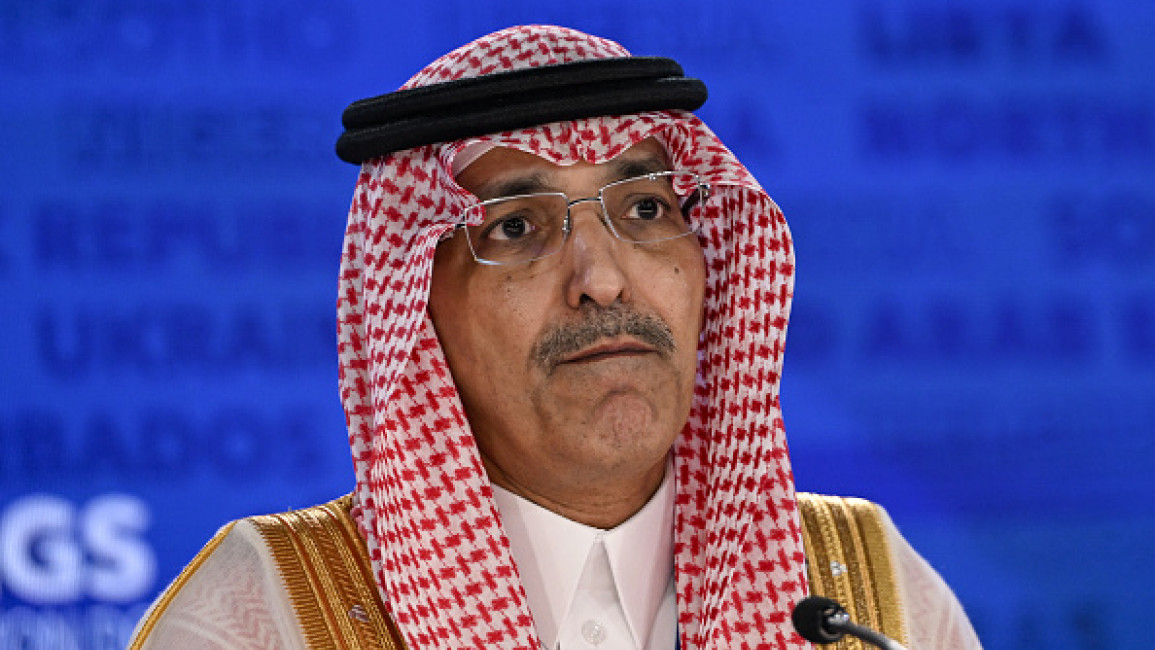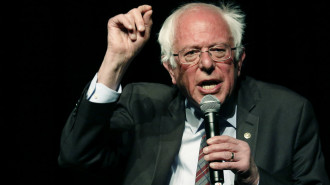Saudi minister says reforms 'on track' despite 'challenges'
Saudi Arabia's finance minister said Wednesday that the Gulf kingdom's sweeping plans to wean its economy off oil were "on track" despite "challenges" in executing specific projects.
"We're not shying away from the challenges -- challenges in relation to human resource and ability to execute," Mohammed al-Jadaan told a panel at the Future Investment Initiative in Riyadh, sometimes dubbed "Davos in the desert".
Because of these challenges the government was "recalibrating our plans", trying not to overheat the economy and to give the private sector time to "catch up" with government ambitions, he said.
"We are actually on track," Jadaan said, citing an internal assessment he said found that 87 percent of targets had either been achieved or were on schedule.
"Overall, I think we are very, very excited with what we have achieved under Saudi Vision 2030, but we are not complacent," he added, referring to the economic plans spearheaded by Crown Prince Mohammed bin Salman, Saudi Arabia's de facto ruler.
At a briefing with journalists in December last year, Jadaan said officials had decided to push the timeframe for some major projects past 2030, though he did not provide details and noted others would be accelerated.
In May, he said "shocks" including the war in Gaza were prompting officials to "re-prioritise" some aspects of Vision 2030.
There has been mounting scepticism over signature projects like NEOM, a planned futuristic megacity in northwest Saudi Arabia meant to feature a ski resort and twin skyscrapers 170 kilometres (105 miles) long.
Authorities have reportedly scaled back 2030 size and population targets for NEOM, though officials have not confirmed any revisions.
During a separate panel on Wednesday, NEOM deputy CEO Rayan Fayez did not specifically address reports of scaled-back targets but said NEOM was at "a very interesting inflection point" in terms of funding.
Over the past 18 to 24 months, NEOM has received more than 60 billion Saudi riyals (around $16 billion) in private sector commitments and more than 30 billion riyals in debt funding, he said.
"We're seeing very good appetite from the private sector to co-fund and co-invest with us in the journey. This will not work with the government funding alone," Fayez said.
"The intention has always been for the government to kickstart it and invest significantly in the infrastructure for the private sector to come in," he added.
Fayez also said NEOM was about more than real estate and that officials are trying to create the "city of the future".
"Real estate is a big part of it. Neom is an economy-building exercise," he said.




 Follow the Middle East's top stories in English at The New Arab on Google News
Follow the Middle East's top stories in English at The New Arab on Google News
![The US vetoed a UN Security Council (UNSC) resolution demanding a ceasefire in Gaza [Getty]](/sites/default/files/styles/image_330x185/public/2185152251.jpeg?h=7ef8ac04&itok=RpLSj2pu)

![An attack by paramilitary forces in Sudan has killed at least 40 people [Getty]](/sites/default/files/styles/image_330x185/public/2182364341.jpeg?h=a5f2f23a&itok=r8Fkhxdj)